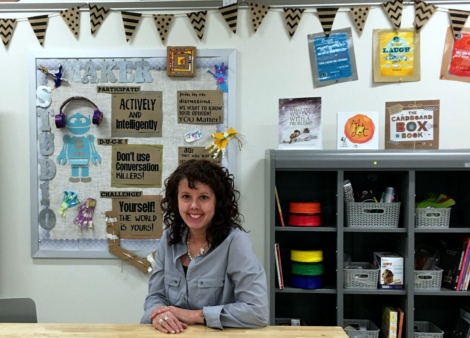
Thoughts, Tips, and Tricks from Future CBEs
Posted by cemignano on
The BrainPOP Educators team is currently hosting one of our online Certified BrainPOP Educator courses and there have been many lively discussions among the participants. We’ve been so impressed by the conversations and ideas our future CBEs have shared, that we wanted to share some of the highlights here on the blog. Throughout the course, we discuss concept mapping, game based learning, assessment, and more. As a multi-part series, we’re going to share some of the discussion highlights from each unit. For the first part of this series, let’s explore the benefit of starting a lesson or unit with a quiz.
If you’ve ever attended a BrainPOP training, we often like to kick off the session with a quiz. But, why?
“I think students would be interested in the results of the whole class after the pre-tests to feel validated on how many other students did not know the content yet. I also think a pretest allows students to take responsibility for their learning by knowing what they already know and feeling good about themselves and also to be able to set goals for what they are not proficient at with the parts of the pretest that they couldn’t do.” -Lynn Gorey
“I always enjoy using the BrainPop quizzes with my students though because they almost always lead us into great discussions about why one group of students feels that an answer is correct or incorrect and why. I feel that this is valuable not only to more deeply understand what we are learning, but to also foster the ideas that it is ok to make mistakes as a part of the learning process, as well as that there is more than one way to think about a question.” – Shannon Wright
“Many teachers do use some sort of activity to hook their students and get them mentally prepared for what they are about to learn. Why not use a quiz? The students are asked questions related to the topic they are about to study; this can get them excited about what they are about to learn, trigger discussions about what they are ready know about the topic, generate questions of things they want to know about a topic, and help them identify areas that they are not so familiar with that relates to the topic…all things that Madeline Hunter’s anticipatory set were intended to do.” -Kathleen Weil
“Assessing students’ prior knowledge is an extremely great way to get a good feel for where students are before you start instruction so that you can have guidance as to the needs of your learners. I like Brainpop’s Poll feature because it isn’t an intimidating tool that might turn a student off before a unit starts. I do worry as an educator about the amount of assessment we put on our little learners.” -Samantha Knoll
Check back next week for some more behind the scenes look at the course discussions around game-based learning!














